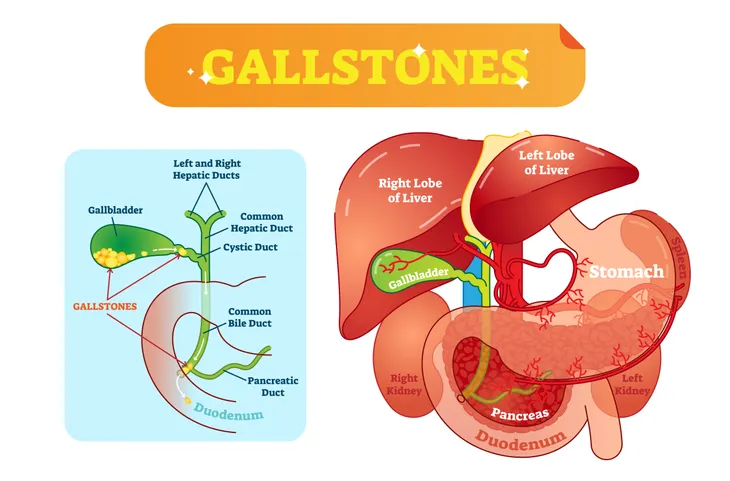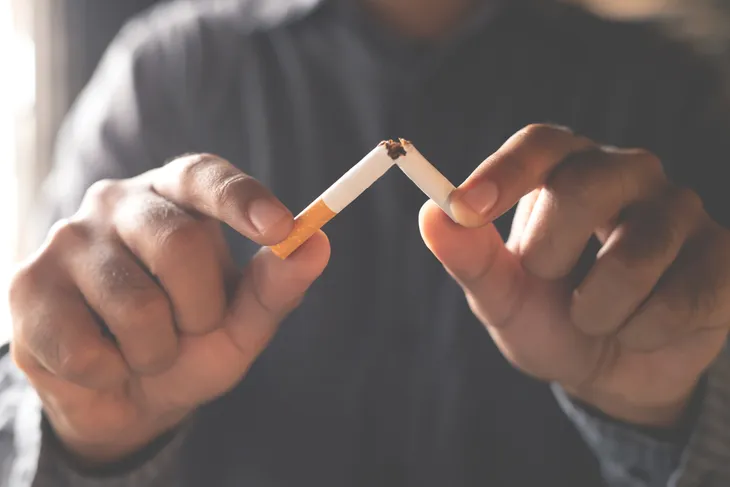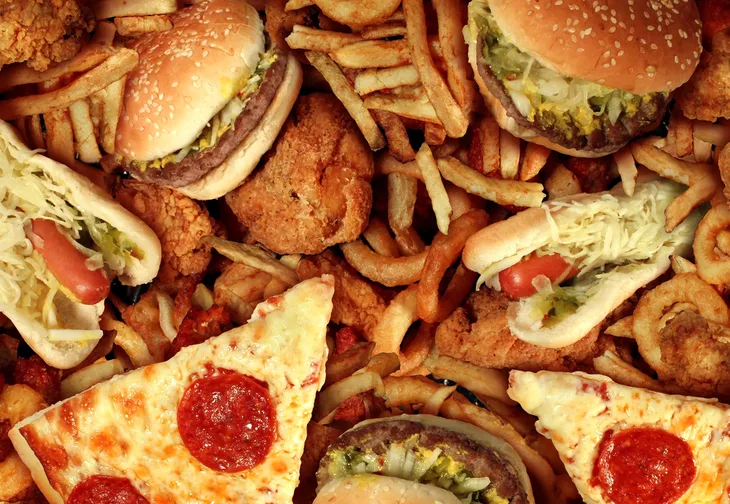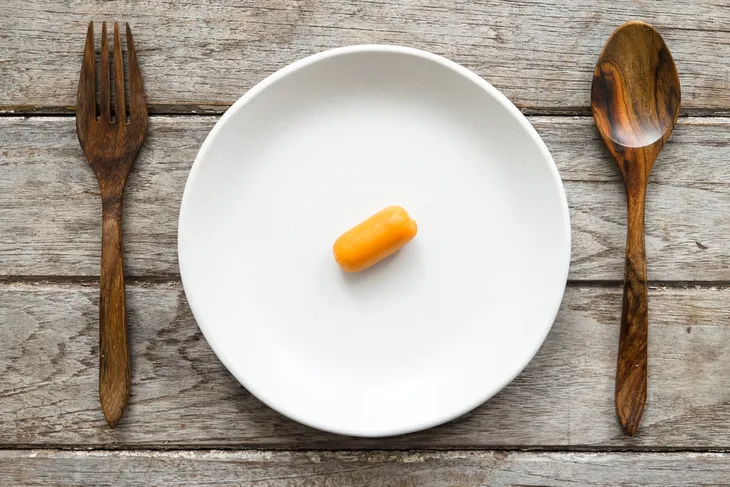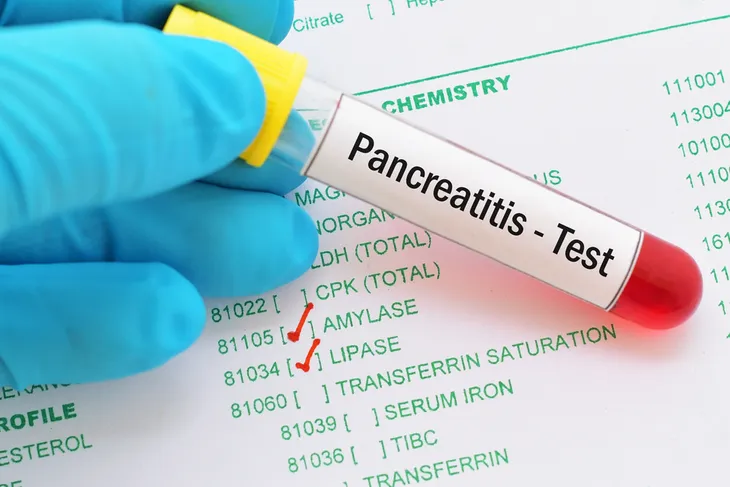Every time you eat a meal or sip on a drink, your pancreas is working hard to make sure it’s being properly digested. This organ is only about the size of your hand and is responsible for making pancreatic juices called enzymes. All this helps your body to function properly and create hormones that regulate your blood sugar, appetite, stomach acids, and more. Unfortunately, some common habits can put your pancreas’s health in jeopardy. Seemingly harmless habits that are part of your daily routine could actually be causing the pancreas to malfunction or develop undesirable health conditions.
Drinking Alcohol
Although alcohol contributes to an onslaught of health problems, it’s still something that the majority of Americans ages 18 and older do at one point or another. According to Cleveland Clinic, alcohol is responsible for up to 70-percent of chronic pancreatitis cases.
Alcohol has negative effects on the pancreas after a binge. The American Addictions Centers says there is no perfect explanation as to why alcohol leads to inflammation of the pancreas, but there is evidence showing it’s the second most common cause of acute pancreatitis. Avoid hurting your pancreas by limiting alcohol consumption and by not binging.
Having Gallstones
Gallstones are commonly diagnosed in the bladder, but they can also appear in the pancreas. This condition is known as gallstone pancreatitis. It develops when the stone travels from the gallbladder and leads to a blockage of the pancreatic duct.
Unfortunately, there is no definitive way to prevent gallstones. But there are lifestyle factors that increase your risk. To prevent gallstones the best you can, it’s important to:
- Maintain a healthy diet.
- Keep your cholesterol levels in a normal range.
- Properly manage your diabetes, if you have it.
Smoking
Cigarettes are a dangerous habit that comes with some potentially fatal consequences in the long term. Another part of the body that smoking can hurt is the pancreas. An article published on JAMA Internal Medicine says smokers have an increased risk of developing pancreatitis.
Compared to non-smokers, both current and previous smokers carry a higher risk. Although alcohol and gallstones are the two biggest contributors, cigarettes are a dangerous habit that has its triggers affecting both male and female smokers.
Not Drinking Enough Water
Be honest with yourself, are you drinking enough water each day? Water is needed by each and every cell in your body to work properly. It’s also very important for your pancreatic health!
The cells in your pancreas require hydration to work effectively. Even slight dehydration can cause inflammation in your pancreas. Mayo Clinic explains the experts recommend men drink about 15.5-cups (3.7-liters) of fluids each day. While the daily recommended intake for women is about 11.5-cups (2.7-liters) of fluid per day.
Keep in mind, you can also consume fluid by eating hydrating foods. Some of these include watermelon, cucumber, spinach, lettuce, and strawberries.
Having a Poor Diet
Your diet plays a role in just about every health-related issue — and your pancreas is no exception. Healthline says your pancreas health is directly related to what you eat because it has such a big role in the digestive process. In fact, your diet could be responsible for developing chronic pancreatitis flare-ups.
So, which foods are not good for the pancreas? Fried and processed foods are at the top of the list of worst foods for your pancreas. Some examples of foods to limit in your diet include:
- Red and organ meats
- Full-fat dairy
- Pastries, desserts, and drinks with added sugars
- Mayonnaise
- Margarine and butter
Foods You Should Eat Instead
As bad as some foods can be for your pancreas, there are plenty of nutritional options that can do a whole lot of good. Healthline says you’ll want to prioritize foods that are rich in protein, low in fats, and contain lots of antioxidants.
Keep your pancreas in good health by eating foods such as the following on a regular basis:
- Lean meats
- Dairy alternatives like flax or almond milk
- Spinach
- Whole grains
- Blueberries
- Cherries
- Hummus
Late-Night Eating
Eating a late-night snack every once in a while might do no harm but making late-night eating a habit may cause harm to your pancreas. This is because eating late may put pressure on your pancreas causing indigestion and in some cases, weight gain.
It’s important to give your pancreas time to recover and rest. This is why fasting at night can be beneficial for your pancreas allowing it to regenerate enzymes.
Not Being Active
Forbes reports the average person spends half their days sitting down on the couch or chair. For office workers, they can spend as much as 15-hours in a chair every day. This can have severe health consequences on the entire body, including the pancreas.
Living a sedentary lifestyle prevents your blood from circulating to its fullest potential. NDTV explains how like all major organs, the pancreas needs a blood supply. Regular exercise can promote healthy blood circulation and allow you to maintain a good heart, weight, blood pressure, and more.
All that being said, you should exercise regularly if you’re not already doing so. It gives the body a fighting chance against many risk factors related to pancreatic conditions.
Being Overweight
Poor daily habits like eating an unhealthy diet, drinking excessive alcohol, smoking, and living a sedentary lifestyle can all lead to weight gain. Being overweight is not healthy in general but it can also put a strain on your pancreatic health too.
NYU Langone Health says, “Being overweight or obese can increase the risk of developing gallstones, which can lead to pancreatitis if stones get trapped in the duct that allows digestive enzymes to exit the pancreas.” This is why it’s important to maintain a healthy weight. If you need help losing weight, talk to your doctor, dietician, or nutritionist.
Crash Dieting
Juice cleanses and other crash diets can lead to weight loss, but it’s definitely not healthy for your body. This type of dieting can lead to serious complications for the pancreas.
Everyday Health explains how your body increases cholesterol production when you have rapid weight loss. This response puts you at higher risk for gallstones which, in turn, increases your risk of developing pancreas problems. If you’re trying to lose weight, do it slow and steady to avoid preventable health troubles.
Pancreas-Related Health Conditions
If your pancreas is not doing well, there are several conditions it could potentially be related to. Each of them has its own level of severity, symptoms, and treatment options. Here’s a brief explanation of some common conditions noted by Hopkins Medicine:
- Pancreatitis occurs when the pancreas becomes inflamed, which can be painful.
- Diabetes can be developed if your body cannot use the insulin your pancreas produces.
- Pancreatic cancer is another concern. The root of pancreatic cancers begins in the cells that make enzymes for digestion.
Signs of Pancreas Problems
There are some telltale signs that your pancreas is not doing too well. Pancreatitis is a condition that can cause mild symptoms but can also lead to a life-threatening illness. WebMD says the following symptoms related to pancreatitis include:
- Fever
- Higher heart rate
- Nausea and vomiting
- Swollen and tender belly
- Pain in the upper part of your belly that goes to your back
- Diarrhea and weight loss
- Upset stomach and vomiting
If you’re experiencing persistent symptoms, then schedule a visit with your doctor or go immediately to the emergency room. They can diagnose your symptoms and get your pancreas health back on track.


